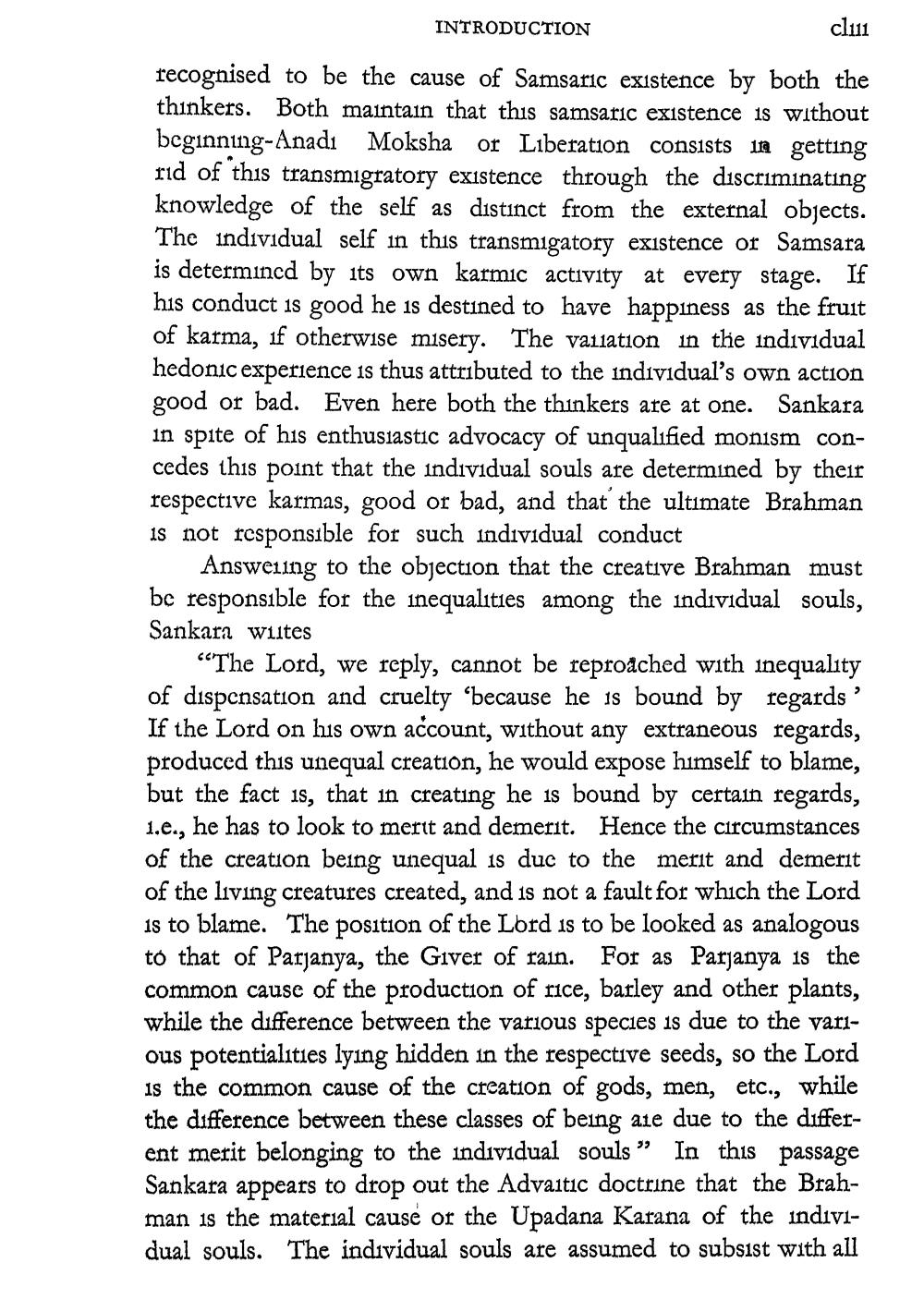________________
cl111
recognised to be the cause of Samsaric existence by both the thinkers. Both maintain that this samsaric existence is without beginning-Anadı Moksha or Liberation consists in getting rid of this transmigratory existence through the discriminating knowledge of the self as distinct from the external objects. The individual self in this transmigatory existence or Samsara is determined by its own karmic activity at every stage. If his conduct is good he is destined to have happiness as the fruit of karma, if otherwise misery. The variation in the individual hedonic experience is thus attributed to the individual's own action good or bad. Even here both the thinkers are at one. Sankara in spite of his enthusiastic advocacy of unqualified monism concedes this point that the individual souls are determined by their respective karmas, good or bad, and that the ultimate Brahman is not responsible for such individual conduct
Answering to the objection that the creative Brahman must be responsible for the inequalities among the individual souls, Sankara wiites
INTRODUCTION
1.e.,
"The Lord, we reply, cannot be reproached with inequality of dispensation and cruelty 'because he is bound by regards' If the Lord on his own account, without any extraneous regards, produced this unequal creation, he would expose himself to blame, but the fact is, that in creating he is bound by certain regards, he has to look to merit and demerit. Hence the circumstances of the creation being unequal is due to the merit and demerit of the living creatures created, and is not a fault for which the Lord is to blame. The position of the Lord is to be looked as analogous to that of Parjanya, the Giver of rain. For as Parjanya is the common cause of the production of rice, barley and other plants, while the difference between the various species is due to the varıous potentialities lying hidden in the respective seeds, so the Lord is the common cause of the creation of gods, men, etc., while the difference between these classes of being ate due to the different merit belonging to the individual souls" In this passage Sankara appears to drop out the Advaitic doctrine that the Brahman is the material cause or the Upadana Karana of the individual souls. The individual souls are assumed to subsist with all




